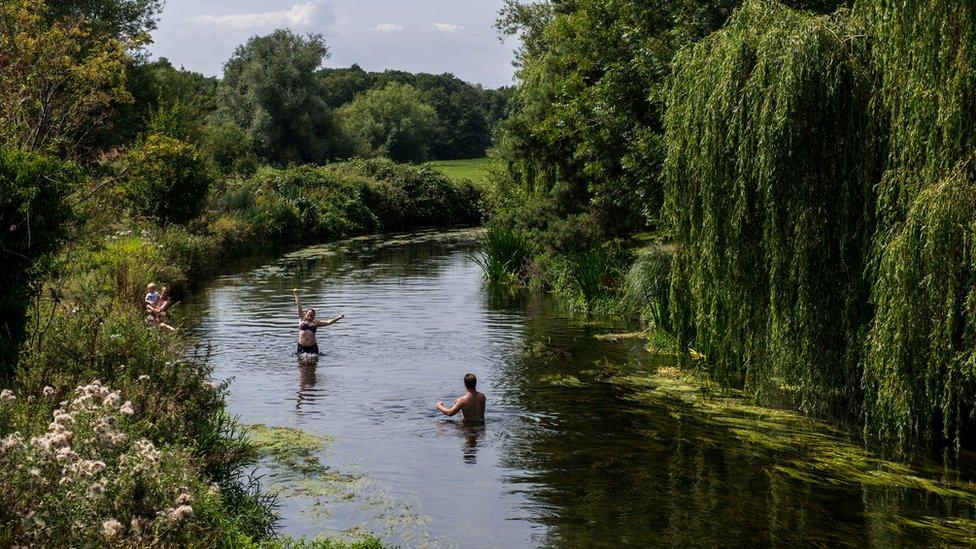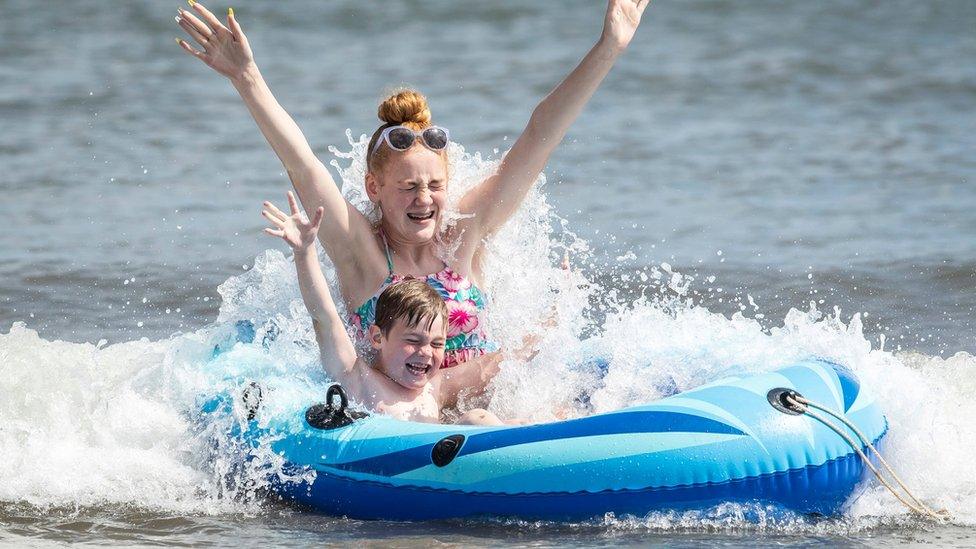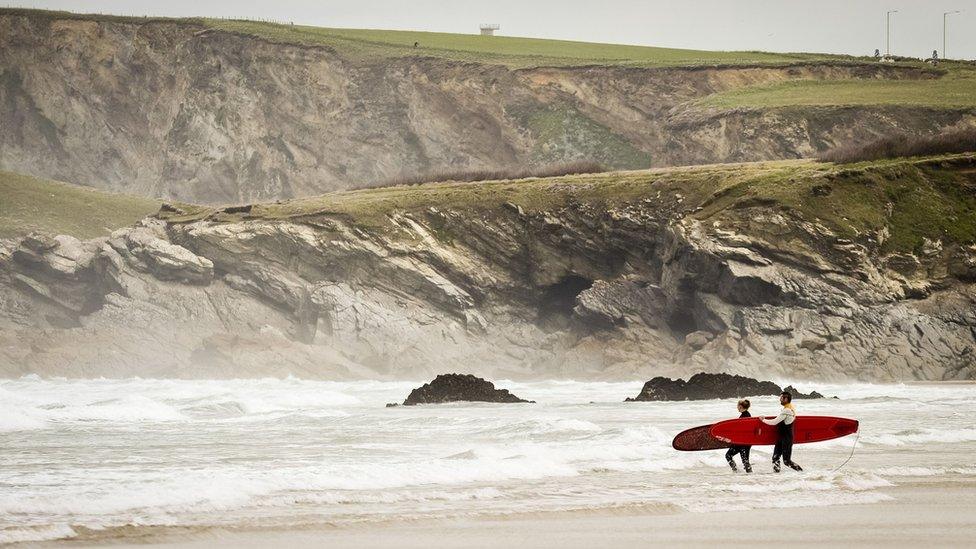UK weather: How can you swim safely in open waters?
- Published

The Royal Life Saving Society is urging people to take precautions
With UK temperatures expected to hit 36C (97F) this week, the temptation to go for a dip in a river or lake can be understandably strong. But the hazards of open water swimming can often be overlooked. What can you do to stay safe?
Last year, 34 people died while swimming in open waters, according to the National Water Safety Forum, external.
Hot weather often brings with it a spate of water-related deaths. The body of a swimmer was pulled from a lake at Cotswold Water Park in Gloucestershire on Tuesday and searches are under way to find three people who have gone missing in the Thames in London.
It is impossible to stop people swimming but they should be aware of the risks and take precautions, according to Claire Huggins of the Royal Life Saving Society, external.
Its advice includes:
Swim at supervised or lifeguarded sites
Swim parallel with the shore
Swim with friends or family
Look for signs and advice about the specific dangers at your location
Think about what you will do if something goes wrong
Ms Huggins said: "At this time of year and with this type of weather it is really tempting to go for a swim. People are looking for places to cool off and that is understandable, we just urge people to take precautions."
Incidents in 2018
263accidental drownings
74of them in rivers
93were walking or running and fell in
34drowned while swimming
17were jumping or diving in
Hidden dangers include currents, submerged debris and pollutants, but Ms Huggins said one of the biggest threats is the unexpected cold water shock, a physical reaction to sudden immersion in cold waters.
"Everyone is susceptible. It can be deadly even to the strongest swimmers, you can still be caught out," she said.
"The natural reaction when immersed in cold water is to gasp, and if you do that in water where you are out of your depth you can see how that can bring on panic.
"All of a sudden that scenario can become very serious and potentially life-threatening."
Anyone entering the water should consider the possibility of such a shock, Ms Huggins said, and if possible prepare for it by entering the water slowly and not beyond their depth.
The RNLI has also issued advice on what to do if you accidentally end up in water, which includes floating to regain breathing control before trying to swim.
Ms Huggins also warned that sub-surface conditions, like currents, can suddenly change even in seemingly still waters, such as at lakes or quarries.
"That's the unpredictability of water," she said.
Cornwall surfer says RNLI technique saved her life
The society also encourages people to know what to do in an emergency, where the nearest equipment is and who to call.
"In the UK it would be 999 but if you are going abroad, make sure you know the emergency service number," Ms Huggins said.
- Published24 July 2019

- Published30 May 2019
